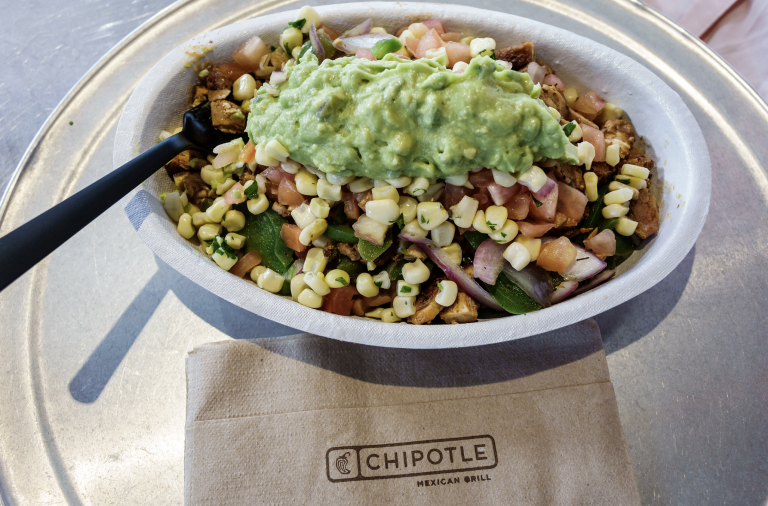Many eco-friendly takeout bowls contain dangerous chemicals linked to cancer and infertility
Brinkwire | August 6, 2019

Read full article by Brinkwire
“The supposedly compostable bowl that holds your lunch you pick up from Chipotle or Sweetgreen may not be so harmless.
An investigation from the New Food Economy has found that the bowls contain PFAS, man-made chemicals that don’t break down in the environment and have been linked to several health problems.
Known colloquially as ‘forever chemicals’, PFAS chemicals contain compounds that can taint soil, pollute water and ruin composts…
PFAS, or per- and polyfluoroalkyl substances, are man-made chemicals that have been used in several industries around the world since the 1940s.
They are ubiquitous, appearing in everything from cosmetics to water-repellent clothing to products that scrub away grease and oil, according to the Centers for Disease Control and Prevention.
They can also be found in molded fiber bowls, which are served at numerous takeout locations and were meant to be the solution to large amounts of generated waste.
The bowls were accepted as an alternative to foam clamshell containers, which are known to be difficult to recycle…
Because PFAS has ‘water- and grease- repelling properties’, according to the New Food Economy, these bowls are ideal for holding hot and greasy food.
The New Food Economy tested molded fiber bowls from 14 locations of eight different restaurants/markets: Chipotle, Dig Inn, Dos Toros, Fresh & Co, Little Beet, Mangia, Sweetgreen and Urbanspace.
Testing doesn’t look at specific chemicals but rather if the bowls have been treated with fluorochemicals, or chemicals from fluorine.
‘High levels prove that a product was intentionally manufactured with PFAS,’ wrote New Food Economy author Joe Fassler.
All the bowls tested had levels that amounted to about 2,000 parts per million of PFAS, or 0.2 percent of the bowl’s total material is made from fluorinated chemicals
This may not seem like much nor exceed the US Food and Drug Administration’s threshold of concentrations of PFAS that can be found in food packaging: between 0.25 percent and 1.5 percent.
But it has far-reaching consequences.
‘Short-chain’ PFAS compounds, believed to be less dangerous than their ‘long-chain’ counterparts, can stay in the body for days or even months before being excreted completely.
PFAS chemicals have been linked to behavioral problems, birth defects, high cholesterol levels, kidney and testicular cancers, thyroid disorders and infertility…
What’s worse: it means these bowls are not compostable or biodegradable – meaning they will remain on earth for several generations and beyond.
Earlier this year, a bill was introduced in the House of Representatives that would give the FDA until 2022 to ban PFAS chemicals in food packaging…”
This content provided by the PFAS Project.
Location:
Topics: